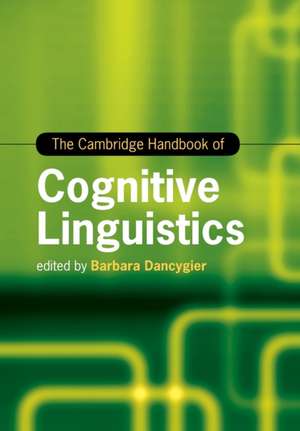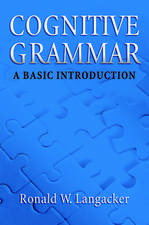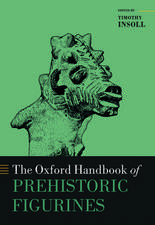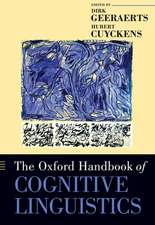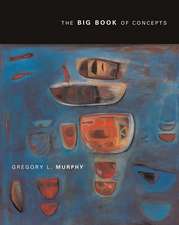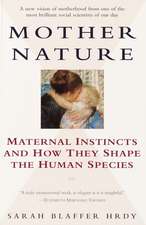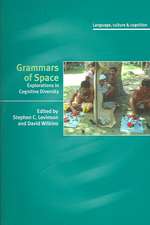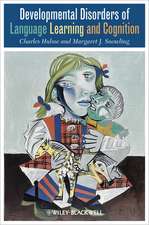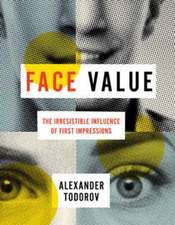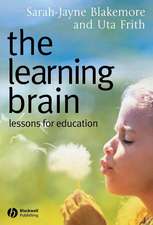The Cambridge Handbook of Cognitive Linguistics: Cambridge Handbooks in Language and Linguistics
Editat de Barbara Dancygieren Limba Engleză Paperback – 7 apr 2021
| Toate formatele și edițiile | Preț | Express |
|---|---|---|
| Paperback (1) | 488.58 lei 6-8 săpt. | |
| Cambridge University Press – 7 apr 2021 | 488.58 lei 6-8 săpt. | |
| Hardback (1) | 992.66 lei 38-44 zile | |
| Cambridge University Press – 31 mai 2017 | 992.66 lei 38-44 zile |
Din seria Cambridge Handbooks in Language and Linguistics
-
 Preț: 257.36 lei
Preț: 257.36 lei -
 Preț: 418.51 lei
Preț: 418.51 lei -
 Preț: 282.02 lei
Preț: 282.02 lei - 14%
 Preț: 989.26 lei
Preț: 989.26 lei -
 Preț: 282.53 lei
Preț: 282.53 lei -
 Preț: 285.18 lei
Preț: 285.18 lei -
 Preț: 280.50 lei
Preț: 280.50 lei -
 Preț: 338.63 lei
Preț: 338.63 lei -
 Preț: 297.50 lei
Preț: 297.50 lei -
 Preț: 281.54 lei
Preț: 281.54 lei -
 Preț: 280.68 lei
Preț: 280.68 lei -
 Preț: 347.32 lei
Preț: 347.32 lei -
 Preț: 423.15 lei
Preț: 423.15 lei -
 Preț: 286.28 lei
Preț: 286.28 lei -
 Preț: 283.58 lei
Preț: 283.58 lei -
 Preț: 417.89 lei
Preț: 417.89 lei - 14%
 Preț: 880.31 lei
Preț: 880.31 lei -
 Preț: 419.22 lei
Preț: 419.22 lei -
 Preț: 315.13 lei
Preț: 315.13 lei -
 Preț: 284.81 lei
Preț: 284.81 lei - 23%
 Preț: 977.84 lei
Preț: 977.84 lei - 19%
 Preț: 501.32 lei
Preț: 501.32 lei - 23%
 Preț: 1493.38 lei
Preț: 1493.38 lei -
 Preț: 419.93 lei
Preț: 419.93 lei - 19%
 Preț: 451.06 lei
Preț: 451.06 lei - 23%
 Preț: 949.76 lei
Preț: 949.76 lei - 23%
 Preț: 1066.00 lei
Preț: 1066.00 lei - 14%
 Preț: 989.04 lei
Preț: 989.04 lei -
 Preț: 370.92 lei
Preț: 370.92 lei - 23%
 Preț: 1075.01 lei
Preț: 1075.01 lei - 23%
 Preț: 1023.97 lei
Preț: 1023.97 lei - 11%
 Preț: 507.18 lei
Preț: 507.18 lei - 23%
 Preț: 753.13 lei
Preț: 753.13 lei -
 Preț: 473.75 lei
Preț: 473.75 lei -
 Preț: 468.73 lei
Preț: 468.73 lei - 23%
 Preț: 1027.19 lei
Preț: 1027.19 lei
Preț: 488.58 lei
Nou
Puncte Express: 733
Preț estimativ în valută:
93.52€ • 98.25$ • 78.59£
93.52€ • 98.25$ • 78.59£
Carte tipărită la comandă
Livrare economică 11-25 martie
Preluare comenzi: 021 569.72.76
Specificații
ISBN-13: 9781107544208
ISBN-10: 1107544203
Pagini: 842
Ilustrații: 70 b/w illus. 10 tables
Dimensiuni: 170 x 245 x 42 mm
Greutate: 1.32 kg
Editura: Cambridge University Press
Colecția Cambridge University Press
Seria Cambridge Handbooks in Language and Linguistics
Locul publicării:New York, United States
ISBN-10: 1107544203
Pagini: 842
Ilustrații: 70 b/w illus. 10 tables
Dimensiuni: 170 x 245 x 42 mm
Greutate: 1.32 kg
Editura: Cambridge University Press
Colecția Cambridge University Press
Seria Cambridge Handbooks in Language and Linguistics
Locul publicării:New York, United States
Cuprins
Introduction Barbara Dancygier; Part I. Language in Cognition and Culture: 1. Opening commentary: language in cognition and culture N. J. Enfield; 2. Relationships between language and cognition Daniel Casasanto; 3. The study of indigenous languages Sally Rice; 4. First language acquisition Laura E. De Ruiter and Anna L. Theakston; 5. Second language acquisition Andrea Tyler; Part II. Language, Body, and Multimodal Communication: 6. Opening commentary: polytropos and communication in the wild Mark Turner; 7. Signed languages Sherman Wilcox and Corinne Occhino; 8. Gesture, language, and cognition Kensy Cooperrider and Susan Goldin-Meadow; 9. Multimodality in interaction Kurt Feyaerts, Geert Brône and Bert Oben; 10. Viewpoint Lieven Vandelanotte; 11. Embodied intersubjectivity Jordan Zlatev; 12. Intersubjectivity and grammar Ronny Boogaart and Alex Reuneker; Part III. Aspects of Linguistic Analysis: 13. Opening commentary: linguistic analysis John Newman; 14. Phonology Geoffrey S. Nathan; 15. The construction of words Geert Booij; 16. Lexical semantics John R. Taylor; 17. Cognitive grammar Ronald W. Langacker; 18. From constructions to construction grammars Thomas Hoffmann; 19. Construction grammars Thomas Hoffmann; 20. Cognitive linguistics and pragmatics Kerstin Fischer; 21. Fictive interaction Esther Pascual and Todd Oakley; 22. Diachronic approaches Alexander Bergs; Part IV. Conceptual Mappings: 23. Opening commentary: conceptual mappings Eve Sweetser; 24. Conceptual metaphor Karen Sullivan; 25. Metonymy Jeannette Littlemore; 26. Conceptual blending theory Todd Oakley and Esther Pascual; 27. Embodiment Raymond W. Gibbs, Jr; 28. Corpus linguistics and metaphor Elena Semino; 29. Metaphor, simulation, and fictive motion Teenie Matlock; Part V. Methodological Approaches: 30. Opening commentary: getting the measure of meaning Chris Sinha; 31. The quantitative turn Laura A. Janda; 32. Language and the brain Seana Coulson; 33. Cognitive sociolinguistics Willem B. Hollmann; 34. Computational resources: framenet and constructicon Hans C. Boas; 35. Computational approaches to metaphor: the case of MetaNet Oana A. David; 36. Corpus approaches Stefan Gries; 37. Cognitive linguistics and the study of textual meaning Barbara Dancygier; Part VI. Concepts and Approaches: Space and Time: 38. Linguistic patterns of space and time vocabulary Eve Sweetser and Alice Gaby; 39. Space-time mappings beyond language Alice Gaby and Eve Sweetser; 40. Conceptualizing time in terms of space: experimental evidence Tom Gijssels and Daniel Casasanto; 41. Discovering spatiotemporal concepts in discourse Thora Tenbrink.
Recenzii
Advance praise: 'This is the definitive introduction to cognitive linguistics that the mature field deserves, written by the leading practitioners in cognitive approaches to grammar, semantics, conceptual structure, phonology, and everything in-between (and all around). I can't imagine a better introduction for students of language.' Benjamin K. Bergen, University of California, San Diego
Descriere
A comprehensive survey of the quickly developing discipline of cognitive linguistics, its rich methodology, key results, and interdisciplinary context.
